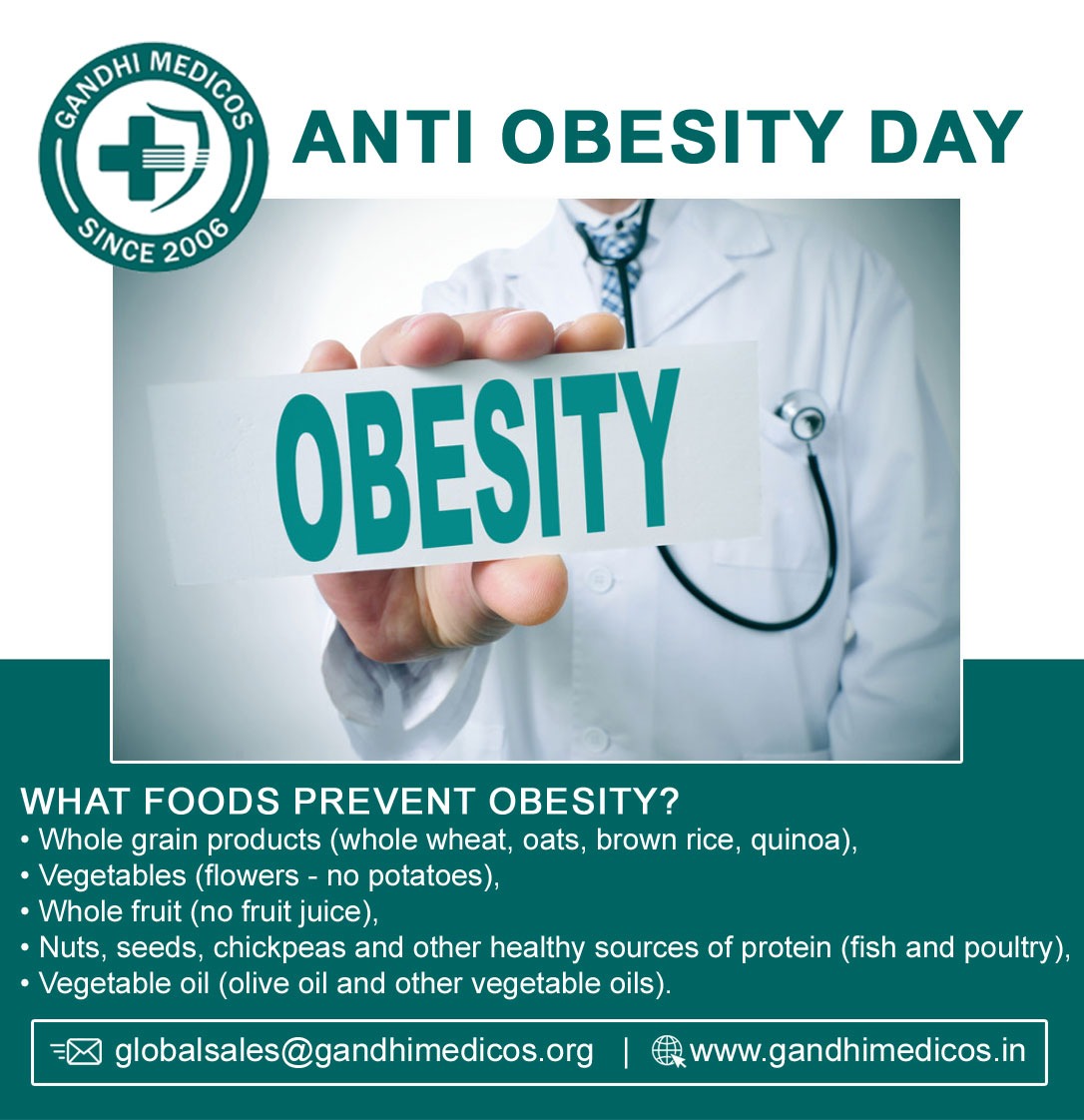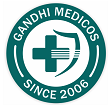Anti-Obesity Day: Causes of Obesity, Symptoms and Prevention

Table of Contents
Anti-Obesity
Obesity occurs when a person consumes more calories, especially from foods high in fat and sugar, than they can burn. As the world grapples with the Covid pandemic, people are starting to realize the importance of eating healthy and eating a balanced diet to fight obesity. Have you ever wondered what obesity really is?
A body mass index (BMI) of 25 and above is a stepping stone towards obesity. With lifestyle changes, including time in the office and on the couch, obesity can become a major cause of disease and increase the risk of the health complications discussed in the next section.
What Causes Obesity and Overweight?

- Diet and activity: People gain weight when they consume more calories than they burn through activity
- Genetics
- Health conditions and medications
- Stress, emotional factors and lack of sleep.
Obesity and Probability of Diseases
Excess body fat increases the risk of serious health problems, including
- Gallstone asthma
- Diabetes
- Hypertension
- Obesity
- High cholesterol
- Cancer – including colon cancer, breast cancer and uterine cancer
- Impaired fertility
- Osteoarthritis – severe joint pain and stiffness
- Higher risk of diabetes
- Kidney disease
In addition to these concerns, being overweight and obese can shorten your life, impair your natural cognitive abilities, and lead to depression and low self-esteem.
What foods prevent obesity?
- Eat well
- Whole grain products (whole wheat, oats, brown rice, quinoa)
- Vegetables (flowers – no potatoes)
- Whole fruit (no fruit juice)
- Nuts, seeds, chickpeas and other healthy sources of protein (fish and poultry)
- Vegetable oil (olive oil and other vegetable oils)
How is obesity measured?
The three factors that assess whether a person’s body fat increases the risk of obesity-related diseases are:
- Body Mass Index
- Waist Measurement
- Other risk factors
Obesity risk factor
Having risk factors for a disease does not mean you will develop it. The greater the number of risk factors, the more likely you are to develop a disease or health problem. This disease increases the risk of health problems such as
- Hypertension
- High levels of cholesterol
- Diabetes
Obesity treatment
Obesity has no shortcuts to muscle loss
Obesity can be overcome by regularly monitoring the body weight, setting realistic goals, eating low-calorie nutritious foods, and exercising regularly.
- Follow a calorie-controlled balanced diet as prescribed by a dietician.
- Get 150 to 300 minutes (2.5 to 5 hours) of exercise per week, such as walking, running, swimming or tennis, eat carefully and avoid times when you tend to overeat.
Obesnia 1000 mg anti-obesity drug is a pharmacological agent that reduces or controls body weight. Anti-obesity drugs are only prescribed by doctors in cases of morbid obesity when weight loss saves lives. These drugs alter one of the fundamental processes in the human body, weight regulation, by changing appetite or calorie intake.
Anti-Obesity Day
November 26 is World Obesity Day every year to raise awareness of the most serious obesity-related diseases affecting people worldwide. Obesity is a condition that causes people to gain a lot of weight in a short period of time. It can also cause a variety of pressing health problems, including heart disease, diabetes, high blood pressure, and certain types of cancer.


 Anti Cancer Drugs
Anti Cancer Drugs Hepatitis C
Hepatitis C Meds for HIV
Meds for HIV Ayurvedic Medicine
Ayurvedic Medicine Transplant Medicine
Transplant Medicine Respiratory System
Respiratory System +91-9999064250 / 9811604424 / 9811604444
+91-9999064250 / 9811604424 / 9811604444
 8(800)100-47-90
8(800)100-47-90
